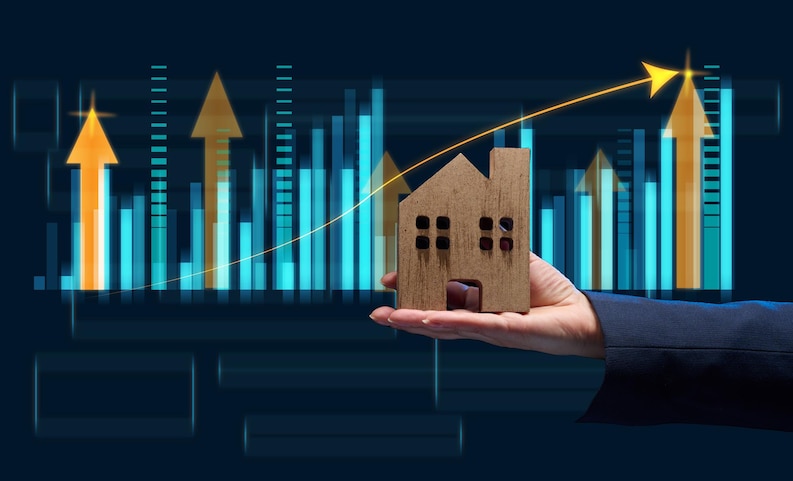
How Emerging Trends in Real Estate Are Creating New Opportunities for Investors and Developers
Technological advancements, consumer demands and economic factors keep the real estate industry evolving. As new trends emerge, investors and developers can profit from lucrative markets, innovative property solutions, and alternative investment models.
In 2025, new trends are redefining how properties are bought, sold, and developed. So whether you’re an investor after high-growth assets or a developer wanting to future-proof your project, understanding these emerging trends will keep you ahead of the curve.
1. Smart Cities and Tech-Driven Real Estate Development
With rapid urbanization comes smart cities and tech-driven real estate development. There are smart cities emerging that include IoT, AI-driven property management, and blockchain transactions in real estate.
For investors and developers: opportunities:
- Buying tech-enabled commercial properties that offer automation, energy efficiency, and digital connectivity.
- Constructing co-living spaces with smart home integrations for remote workers and millennials.
- Transparent and secure real estate transactions using blockchain.
2. A New Era of Sustainable and Eco-Friendly Developments
Sustainability is no longer optional—green building initiatives, net-zero developments, and energy-efficient homes are the new gold standard in modern real estate. Green features, solar energy systems, and water conservation technologies are priorities for buyers and tenants.
For investors and developers: opportunities:
- Investing in LEED-certified commercial properties that deliver value over a lifetime.
- Creating carbon-neutral residential communities for green buyers.
- Working with governments to secure tax incentives and green financing.
3. Booming Real Estate Crowdfunding and Fractional Ownership
Crowdfunding and fractional ownership platforms are democratizing the market. These models let several investors own a property—making real estate more accessible and liquid.
For investors and developers: opportunities:
- Fractional real estate platforms offer diverse asset exposure.
- Developed projects can raise money faster through crowdfunding.
- Entering the tokenized real estate sector using blockchain for ownership transfers.
4. The Shift to Suburban and Secondary Markets
People are moving away from expensive urban centers to suburban and secondary markets due to remote work and affordability issues. Such locations provide larger spaces at lower costs with a higher standard of living, making them attractive for residential and mixed-use developments.
For investors and developers: opportunities:
- Buying suburban rental properties as demand increases.
- Designing and building work-from-home housing units with office space.
- Developing multi-purpose communities combining residential, retail & co-working space.
5. The Rise of Mixed-Use Developments and 15-Minute Cities
A turning point toward mixed-use developments and 15-minute cities is changing real estate—where residents can walk or bike to work, play, healthcare, and shopping within 15 minutes of each other. Mixed-use developments combining residential, commercial, and recreational areas are the new norm.
For investors and developers: opportunities:
- Acquiring urban properties that can be converted to mixed-use spaces.
- Building walkable neighborhoods that emphasize convenience and accessibility.
- Adaptive reuse projects—turning old buildings into modern hubs.
6. Expansion of Short-Term and Flexible Rental Models
Short-term and flexible rental models, co-living spaces, and flexible leasing are in high demand. For travelers, digital nomads, and corporate professionals, Airbnb-style rentals, furnished apartments, and flexible housing are preferred.
For investors and developers: opportunities:
- Investing in short-term rental properties in hot areas.
- Creating branded co-living and serviced apartments for urban professionals.
- Testing out subscription housing models—tenants pay a monthly fee for flexible living.
7. AI, Big Data & Predictive Analytics in Real Estate
Artificial Intelligence (AI) and Big Data are changing how investors and developers make decisions. Predictive analytics may reveal market trends, property risks, and pricing optimizations.
For investors and developers: opportunities:
- Using AI-driven property valuation tools for better investment decisions.
- Applying data analytics to high-growth markets.
- Using automated property management solutions.
8. Housing Crisis Solutions: Affordable Housing & Government-Backed Initiatives
Governments around the world are pushing for affordable housing solutions. Programs like low-income housing tax credits (LIHTC) and public-private partnerships (PPPs) create new investment opportunities.
For investors and developers: opportunities:
- Building affordable housing projects in partnership with governments.
- Investing in social impact real estate funds to support community-driven housing.
- Using tax credits and incentives for affordable rental developments.
This is a dynamic sector, and those who adapt to new trends will stay ahead of the curve. The next era of real estate is being defined by smart cities, sustainable developments, real estate crowdfunding, mixed-use communities, and AI-driven decision-making.
For investors and developers, the key is staying informed, using technology, and adopting new property models. Identifying high-growth areas, using sustainable practices, and leveraging data-driven strategies can help real estate professionals realize maximum returns and create long-term value in a competitive market.
